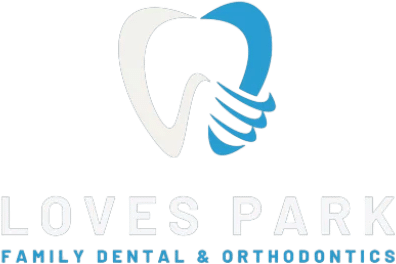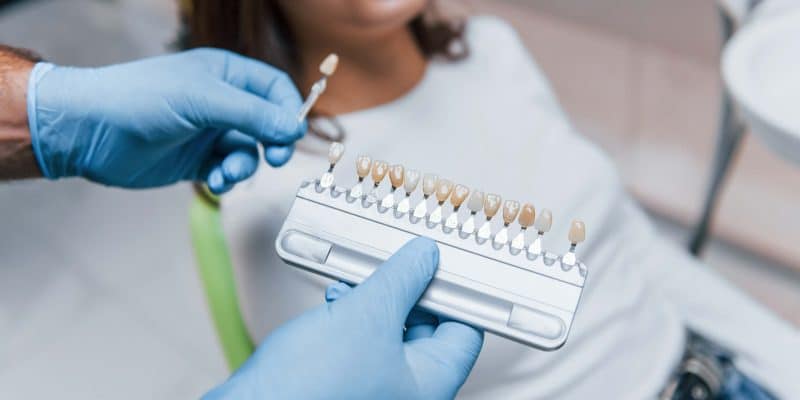Summary:
Dental implants offer a fantastic solution for replacing missing teeth and enhancing your smile and oral health. However, proper aftercare is essential for a smooth recovery and long-lasting results. This blog will guide you through the critical steps of dental implant aftercare, from pain management to infection prevention, ensuring you enjoy the full benefits of your new smile.
What to Expect After Dental Implant Surgery
Dental implants are an excellent option for missing teeth. It’s normal to experience discomfort after dental implant surgery, including pain, swelling, bruising, and bleeding around the implant site. Understanding how to manage these symptoms is crucial for a successful recovery. In this article, we will take you through the steps and guidelines of a dental implant aftercare regime and provide essential tips to keep your oral health in check, protecting you from infections.
Managing Pain and Discomfort after Implants
Alleviating pain and discomfort after a successful implant includes several aspects, including taking care of oral hygiene. Visiting your Loves Park Dentist will help you understand that this pain is normal and boost your morale, knowing that adequate care will expedite the healing process. Take note of your dentist’s instructions and follow the below tips to manage pain and discomfort:
- Medications: The Dentist at Loves Park will likely prescribe pain medication to ease the discomfort. It is essential to take it as directed without exceeding the recommended dose.
- Alternative Options: Over-the-counter pain relief, cold compresses, and adequate rest can help alleviate discomfort.
Swelling and Bruising
- Ice Packs: Applying an ice pack to the affected area can reduce swelling and bruising. Use it for 15-minute intervals several times a day.
- Elevation: Keeping your head elevated with pillows while resting promotes blood flow and reduces swelling.
Managing Bleeding
- Gauze Pads: Your dentist will provide gauze pads to bite down immediately after surgery. Keep the pressure for about 30 minutes to control bleeding.
- When to Call the Dentist: If bleeding persists or is excessive, contact your dentist promptly.
Returning to Normal Activities
A successful implant surgery doesn’t mean you won’t feel any pain, or the healing will be instant. Adequate oral care is the key. You can resume your daily activities the next day; however, kindly avoid strenuous exercises and heavy weights, as the pressure will increase the complications.
5 Essential Dental Implants Aftercare Tips
Your dentist may suggest a prescription and a healthy diet suitable to your current situation. Following them rigorously will expedite the healing process and reduce pain. Following a soft diet and consuming foods and liquids such as soups, mashed potatoes, and yogurt for at least 72 hours post-surgery is advisable. Avoid hot, spicy, and crunchy food as much as possible. Hot food items will disrupt the healing process and lead to further damage.
-
Oral Hygiene Practices
Keeping your oral health in check is one of the best overall dental health practices to help elevate the healing process around implants. Rinsing your mouth with salt water reduces bacterial infection and promotes healing.
-
Foods and Activities to Avoid
Avoid hot drinks, alcohol, and carbonated beverages. Also, avoid using straws, which can cause suction and dislodge the implant. Avoid strenuous activities, such as swimming or using hot tubs, as they may disrupt blood clot formation. Activities like smoking can significantly delay healing, so it’s best to avoid it entirely.
-
Managing Complications
Practicing good oral hygiene is the best defense against infection. Avoid touching the implant site with your hands or tongue. If you experience excessive bleeding, fever, or severe pain, seek dental advice immediately.
-
Recognizing Implant Failure
Loosening or pain around the implant site are signs of implant failure. Early detection is crucial, so contact your dentist immediately if you notice any of these symptoms.
-
Addressing Allergic Reactions
While rare, allergic reactions to dental materials are a possibility. Symptoms include swelling, rash, or difficulty breathing. If you suspect an allergic reaction, contact your dentist without delay.
Effective Pain Management Techniques
-
Over-the-Counter Options
Consult your dentist before using over-the-counter pain relievers, but they can effectively manage mild pain and discomfort.
-
Cold and Warm Compresses
Alternating between cold and warm compresses can help manage swelling and pain. Use cold compresses initially, then switch to warm compresses after the first 48 hours.
-
Rest and Sleep
Proper rest is vital for healing. Sleep with your head elevated and avoid sleeping on the side of the implant.
-
Alternative Techniques
Consider alternative pain management methods such as meditation, acupuncture, or aromatherapy. Always consult your dentist before trying new techniques.
Did You Know?
- Dental implants have a success rate of up to 98%.
- They are designed to last a lifetime with proper care.
- Implants can help preserve jawbone density, preventing the sunken look associated with tooth loss.
Dental Implant Aftercare Tips for Long-Term Success
Make sure that you follow the proper aftercare regime to ensure the success of your dental implants:
- Good Oral Hygiene: Brush and floss regularly to keep the implant area clean.
- Regular Check-ups: Schedule routine dental visits for monitoring and maintenance.
- Healthy Diet: Maintain a balanced diet to support overall oral health.
- Avoid Smoking: Smoking can compromise implant success and should be avoided.
When to Contact Your Dentist?
Stay in touch with your dentist throughout the recovery process. If you experience any unusual symptoms, don’t hesitate to contact them for guidance.
Restore your smile with confidence! Schedule your consultation with the expert dentist at Loves Park today and discover how dental implants can transform your dental health with implants and aesthetics. Don’t wait – your perfect smile is just a phone call away!
Takeaway: Key Points for a Smooth Recovery
- Manage Symptoms: Follow prescribed medications and use compresses to manage pain, swelling, and bruising.
- Adopt a Soft Diet: Stick to soft foods and avoid harmful substances.
- Practice Hygiene: Maintain good oral hygiene with gentle brushing and rinsing.
- Avoid Strain: Refrain from strenuous activities and smoking to promote healing.
- Stay Informed: Know the signs of complications and contact your dentist if needed.
By following these guidelines and consulting with your dentist at Loves Park, you can ensure a smooth recovery and enjoy the aesthetic benefits of dental implants. Remember, proper care and regular dental visits are crucial for the longevity of your implants and overall oral health.

